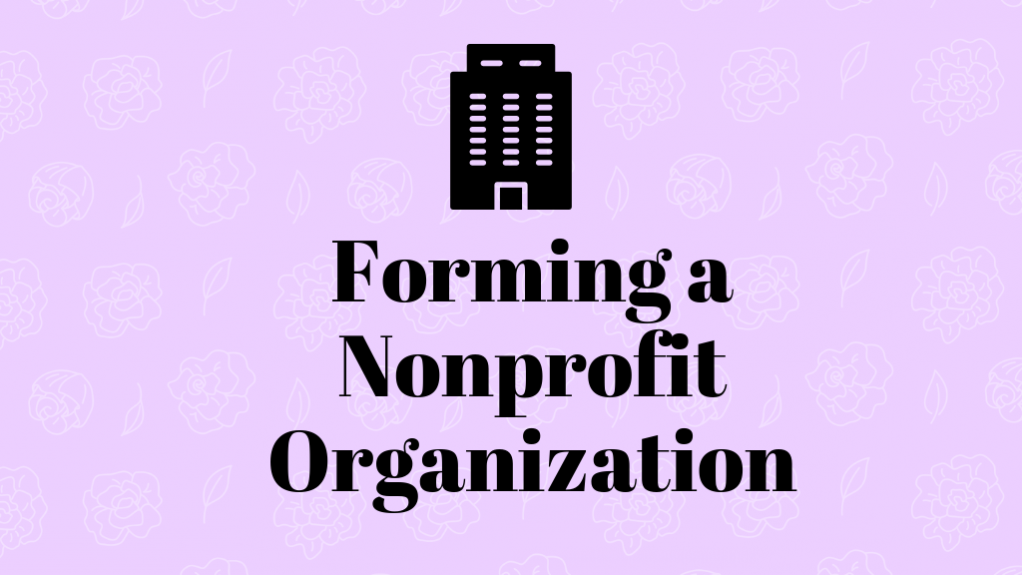Have you ever wanted to raise money for a cause but didn’t know where to start? Maybe you’ve tried to establish a charitable organization only to find out that forming a 501(c)(3) can be incredibly time-consuming and complicated?
Don’t let the maze of IRS requirements keep you from forming a charitable organization. Here are five tips to help you when forming a nonprofit organization.
Decide What Type of Nonprofit You Want to Create
First, you’ll need to decide what type of nonprofit organization you want to create. Only certain types of charitable organizations are eligible for 501(c)(3) tax-exempt status, so make sure your organization’s purpose is among the expressly permitted purposes set forth in Section 501(c)(3) of the IRS Code.
Common exempt purposes include:
- Charitable
- Religious
- Educational
- Scientific
- Literary
Form a Corporation
While the exact procedures for forming a corporation vary from state to state, there are some basic steps you’ll need to take no matter your state of incorporation. Here are a few tasks that should appear on your to-do list:
- Choose a corporate name. Make sure the name has not been taken and that it complies with your state’s corporate formation guidelines.
- Prepare and file an “articles of incorporation.” Don’t forget that there’s typically a filing fee that ranges from $50 to $500 depending on the state where you incorporate.
- Hold a board of directors meeting to elect or appoint corporate officers.
- Prepare organizing documents such as corporate bylaws that establish operating rules for the corporation.
- Apply for a state tax identification number. Even though you are forming a nonprofit to become tax exempt, your nonprofit is still considered an independent taxpaying entity that must have its own tax ID number.
Bonus Tip: It may be wise to find a local CPA Firm to help with the incorporation and to provide more clarity on the tax laws and procedures required for a nonprofit organization.
Obtain an Employer Identification Number
Once your organization is legally formed, you can apply for an employer identification number (EIN). All tax-exempt organizations need an EIN, whether they have employees or not.
Applying for an EIN is easy. You can apply online, by fax, or by mail. If you are an international applicant, you can apply over the phone.
Apply for Tax-Exempt Status with the IRS
Now that you’ve legally formed your corporation and obtained your EIN, it’s time to apply for tax-exempt status with the IRS. Not all nonprofit’s are tax exempt — so, you’ll need to apply for that status.
Complete and submit a Form 1023 (Application for Recognition of Exemption Under Section 501(c)(3) of the Internal Revenue Code). Certain organizations aren’t required to file Form 1023 to be tax exempt, but you may want to file one anyway in order to receive a determination letter recognizing your 501(c)(3) status.
IRS Form 1023 detailed and lengthy. Plus, there attached schedules that you may need to complete depending on the type of organization you’re forming.
It goes without saying that the IRS has very specific requirements for completing Form 1023. Failure to abide by those requirements can result in significant delay in processing your application. In fact, the average IRS processing time is already three to six months. So, it’s critical that you provide complete and accurate information the first time in order obtain your determination letter in a timely manner.
That’s why working with a CPA Firm like Rivero, Gordimer & Company who has experience with nonprofits, can be incredibly valuable.
After you’ve thoroughly reviewed your application, it’s time to submit it. The IRS will let you know if they need additional information or if your form has been forwarded for review. In three to six months you’ll know whether your organization’s application for tax-exempt status has been approved.
Maintain Your Exempt Status
You might think that your work is finished once you secure tax-exempt status for your organization, but that’s hardly the case. Now you need to do what it takes to preserve that status.
Maintaining tax-exempt status is an ongoing process. Here are a few items that you’ll want to be aware of in order to maintain your tax-exempt status:
- File a Form 990, Form 990-EZ or 990-N with the IRS each year.
- If your organization solicits contributions from individuals, be sure to provide written receipts and register and file annual reports in applicable states.
- Establish a process for approving contracts and compensation agreements with officers, directors, and employees. Your organization’s activities must serve public interests, which also means that private business arrangements cannot result in private individuals being unjustly enriched or compensated in excess of fair market value.
- Run your organization like an upstanding business. This means maintaining detailed financial records and keeping any business-related transactions separate from personal accounts.
- Tread lightly when it comes to your organization’s involvement in lobbying activities. You risk losing your tax-exempt status if your organization engages in substantial lobbying.
- Avoid political campaign activities altogether. This includes endorsements, public statements about a candidate, and campaign contributions.
Nonprofits and Rivero, Gordimer & Company
Rivero, Gordimer & Company is an experienced Tampa CPA Firm that recently won Small Business of the Year. Our team of certified public accountants have many years of experience working with nonprofit organizations. If you need help forming a nonprofit or maintaining tax-exempt status, contact our team today at (813)-875-7774.




